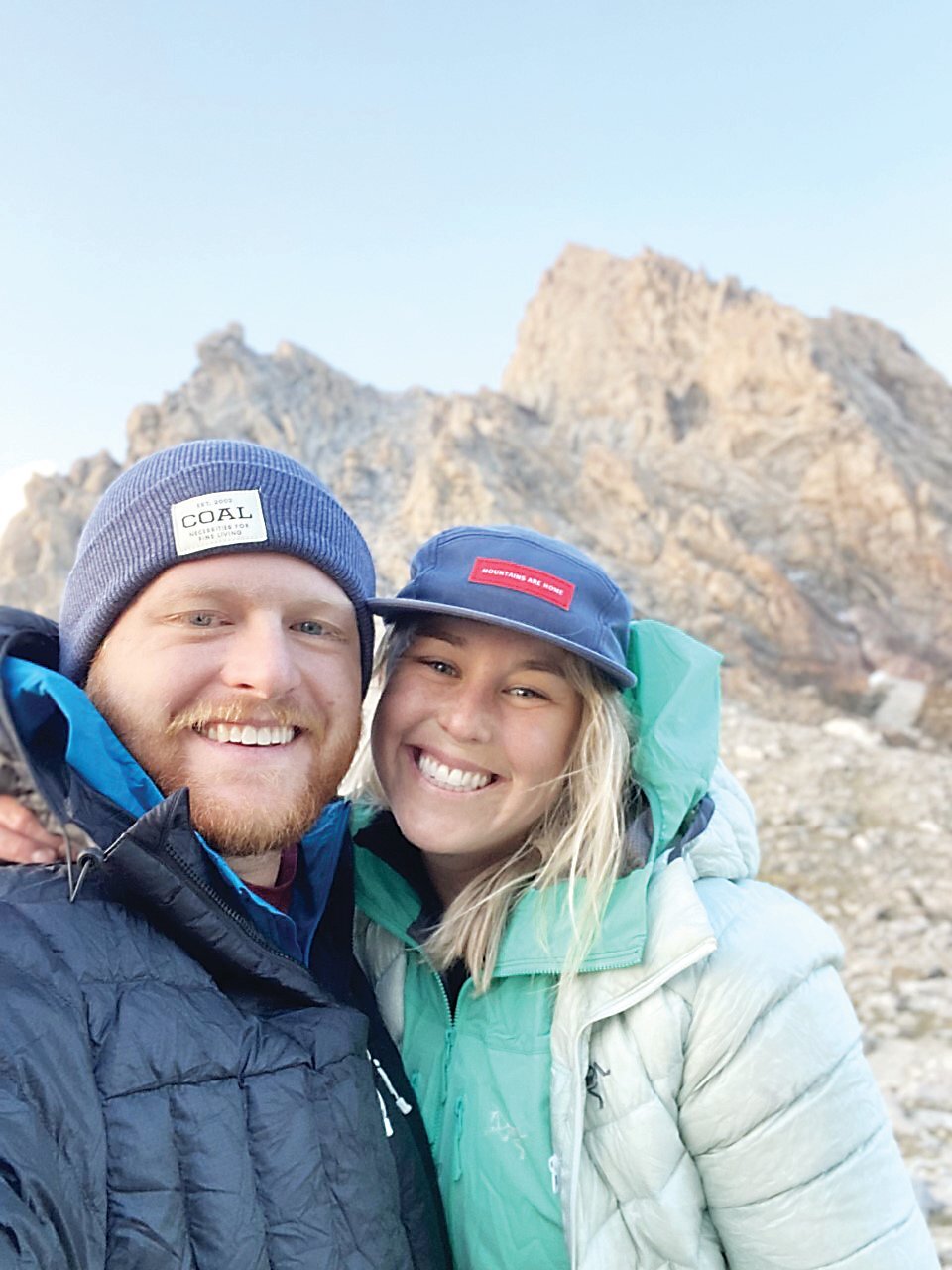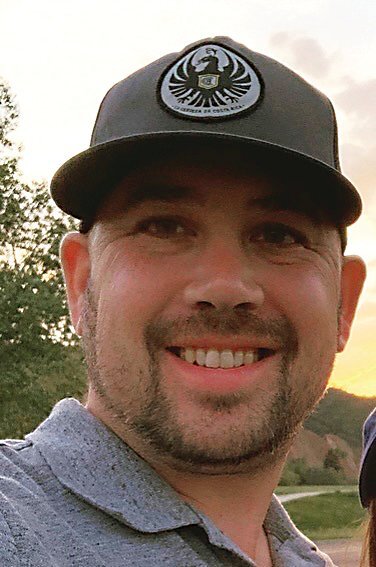Breaking up with social media

CASTLE ROCK, Colo. — For weeks, Jordan Novinger debated breaking up with Twitter.
In the span of a couple months, the Castle Rock resident had gained a following of several thousand. She spent hours talking with people online. Although she made new friends in the process, the 21-year-old also felt pressured to stay engaged.
At work, Novinger tried to resist a persistent temptation to check her accounts. Physically, Novinger was present, she said. Mentally, she was not. Her iPhone's screen time report showed there were days when Novinger spent up to four hours on Twitter.

In early December, Novinger cut the cord. She deleted Twitter. She took a break from Instagram too, which she steps away from periodically.
Since then, Novinger works more. She feels more productive. She is more inclined to pick up the phone and have a conversation with someone. She can't leave Instagram permanently because she uses the site for work, but she hopes she's made “a clean break” from Twitter.
“It was such an addiction,” she said.
The word is 'toxic'
Several people in the Denver metro area who have taken short-term “digital detoxes” or left a platform forever all described social media with the same word: toxic.
They offered up a laundry list of reasons why.
Screen addiction. Never feeling present. Rampant misinformation. Political fights. Hateful comment sections. The comparison game. Misleading highlight reels. The pressure to curate one's life instead of simply live it.
Eventually, they all hit a breaking point.
The concept of undergoing a “digital detox” is increasing in popularity, according to a 2020 study published in the Journal of Technology in Behavioral Science that looked at the practice's impact on well-being.
And while a whopping share of the population still uses social media — about 72% of all Americans do, according to the Pew Research Center — growth on numerous sites is slowing or stagnant.
The number of people on social media has remained relatively stable over the past five years, Pew's Social Media Use in 2021 report says. Growth on platforms including Instagram, Twitter and Snapchat has gone statistically unchanged since 2019.
“This represents a broader trend that extends beyond the past two years in which the rapid adoption of most of these sites and apps seen in the last decade has slowed,” Pew's report states.
Reddit and YouTube are exceptions. Pew surveys found YouTube is the nation's most-used social media platform and has shown a marked increase in growth since 2019. Facebook and Instagram are the next most popular sites.
Pew's study notes “a string of controversies” facing social media sites — like their management of misinformation or privacy concerns — and “the public's relatively negative sentiments” about some parts of social media. Pew surveying found 64% of Americans believe social media has “a mostly negative effect on the way things are going in the country today.”
Intense scrutiny of tech giants at Congress and among the public has spurred glimpses of change. Instagram announced in December a series of new features and tools aimed at "raising the standard for protecting teens" online.
The platform rolled out a "take a break" feature, adding to daily time limits users can set for themselves. Instagram plans to stop people from tagging teens that don't follow them and says it will become stricter about content it suggests to young people. Next year the app will launch a parental "educational hub" and allow parents to see their children's screentime use on Instagram.
At least one mental health expert said while much public scrutiny rightfully focuses on social media's effects on young people, she'd like to see more research and attention on its wellness ramifications across age demographics.
“It's not just about kids,” Diane Thompson said, a psychiatrist with Centura Health.
The individuals who spoke to Colorado Community Media about departing social media ranged in age from 21 to 37. All said they were glad they left. Each emphatically encouraged others to give it a try.
“I would love for people to get off of social media. I think it's just draining, and it can be so negative and toxic,” Novinger said. “While it can be good, I think most of the time it's not used for good.”
Taking the plunge
Evergreen couple Jace and Taylor Jackson, both 30, recently completed a six-week detox from Instagram and have significantly scaled back their use of other platforms.
“I am shocked by how I have really broken the addictive, gotta click the button and check it,” Taylor said.

Social media became a routine part of their lives after their introduction to Myspace as high school and college students. In time, they joined several platforms. Jace said he's known for a while that social media had become “a toxic presence in my life.”
“I want to rule social media. I don't want it to rule me, and I think as soon as it crosses that line, I need to take matters into my own hands,” Jace said.
A book called "The Comfort Crisis," about getting outside comfort zones, inspired him to reconnect with the real world. Jace and Taylor, avid outdoors explorers, also noticed they felt better after backpacking trips during which they rarely checked their phones.
So the duo made a plan to stay off Instagram for a month. Then they enjoyed leaving so much they extended the break another two weeks.
During that time, the couple crushed books, Jace said. They bought “an old-fashioned alarm clock” and charged their phones in the kitchen instead of their bedroom, avoiding the urge to scroll at night. The Jacksons slept better, they found. By day, Taylor stopped filling every free moment with a screen.
Another habit they broke by detoxing — incessantly taking photos. The couple recently got dressed up and attended a holiday party without taking a single picture, they said. Taylor's main goal during her detox was to be more present.
She also doesn't like the comparison game people can get trapped in on social media, particularly when feeds are often carefully curated highlight reels of someone's life, she said.
“I think creating your own reel can steal the joy of what you're trying to capture,” Taylor said. “You're constantly trying to frame your life in a certain way.”
She's not alone in that thinking. Comparing her life to virtual realities drove Alex Williams, 23, to leave Instagram as well, although the Denver resident hopes it's a permanent move for her.

Williams deleted the app after graduating from high school. She went from checking it daily, then weekly, to about once a month before ditching the site altogether. Williams needed to protect her well-being, she said.
“The hardest thing for my mental health was all of the diet culture that's pushed, especially on Instagram,” she said. “It just painted such a fake version of reality that I figured out, first of all, I could never achieve, and second of all, never wanted to.”
After leaving the platform, the negative feelings she experienced when using Instagram completely evaporated, she said.
She checks Reddit every so often and finds dog videos on TikTok amusing. Most of her social media consumption has shifted to YouTube. She listens to podcasts or watches cooking videos. Williams prefers that content because recipes are something she can recreate in her other free time, and cooking makes her happy.
She considers returning to Instagram every few months. Williams could try setting up healthy boundaries for herself, she said, but she hasn't caved yet.
“I don't see myself doing it,” she said.
Jeremy Myles of Roxborough said he too is off one site forever. Myles set up his Facebook profile in 2009. Ten years later, he was done.

The 37-year-old got rid of Facebook partly out of concerns with data privacy, but also because of “the toxicity” and “how much hate was being spewed online.” Time after time, he said, he became frustrated seeing Facebook friends share misinformation, or watching loved ones getinto online political squabbles.
If he joined the spats, Myles never felt better.
“Every one of those arguments was with somebody who I loved or respected,” he said. “I didn't want to contribute to it anymore.”
Myles said he also noticed some of his friends and family, many in the Boomer generation, routinely got sucked into comment sections. Over time they seemed to grow generally angrier and more frustrated.
“It's sad to watch,” he said.
He encourages his parents to avoid the comments, where “people can be so hateful and angry,” he said. If he wants to hold a serious conversation with someone in his life, he tries to do that in-person, rather than from behind a keyboard.
He keeps ups with news on Twitter and is more inclined to engage on that platform but aims to do so sparingly, he said. In the future, Myles might consider using Facebook for business purposes.
“I am absolutely from a personal perspective not going to return to Facebook,” he said.
Expert insight
Mental health and media professionals said they'd like to see more research about psychological benefits of leaving social media. The study that examined digital detoxes' effect on wellness said while commentators have advocated for social media breaks, research that is available has generated mixed results.
And despite the general slowdown in social media adoption, social media use did climb some during the pandemic, Lynn Schofield Clark said. Clark chairs the University of Denver's department of media, film and journalism studies and provided comments by email.
That was likely for pragmatic reasons, she said, like work-related tasks and the need to stay connected.
“I think that the urge to take time away from social media has to be understood in relation to the generalized feeling of exhaustion we all have due to heightened stress,” Clark said.
People use social media to keep up with those who matter to them, “and connection is protective against mental stress and mental illness,” Clark said.
In addition to pointing to the study published in the Journal of Technology in Behavioral Science, Clark added that some people are leaving social media — namely Facebook and Instagram — for reasons other than wellness. That might be their desire for heightened regulations or concerns with privacy violations.
“It's too early to see whether or not this is a trend that will have an effect on these and other companies, but Jack Dorsey's departure from Twitter is interesting in this regard,” Clark said.
Thompson, the Centura Health psychiatrist, said social media isn't all bad if people can master limiting their exposure to toxic content or people and maximizing how it makes them feel connected.
“There are times where social media can be a great way to connect,” Thompson said.
She's still an advocate for breaking away from social media when needed. Thompson has said her clients sometimes come in overwhelmed by comments they receive or see on social media.
Occasionally, she has written a prescription for her client to stay off whatever platform is bothering them. She says it works.
“There is a discernible difference between the last time I saw them and how they were feeling,” she said.
Social media addictions or too much screen time can be taxing on mental health — the content people absorb might be depressing, or spur anxiety and irritability — but it also impacts physical health, Thompson said.
Hours spent on a person's phone could be spent talking a walk, exercising or being physically active.
She suspects people are turning to social media to de-stress while weathering the tumultuous climate of 2020 and 2021. She urged people to have compassion for themselves while they cope, but to also take a hard look at whether the content they consume on social media is actually helping them unwind or further fostering anxiety.
Kendra Miguez founded a therapy center for women focused on helping them build self-esteem and improve their mental health. Colorado Women's Center's five locations include Denver and Broomfield.
“We deal with issues all the time with social media, and a lot of some of the unhealthier aspects of it and how it affects mental health and self-esteem,” she said. “Particularly with the millennial generation and the generation in the teens coming up.”
The average person spends two hours a day on social media, she said, and that's not counting other time spent on the internet. Taking a detox or slowing down social media use makes room for “healthier, more productive activities.”
The platforms can perpetuate unattainable body images or glamorous lifestyles “that can make people feel as if their lives are less worthy.”
“Another con is that it's very addictive. It definitely can light up the same parts of the brain that get lighted with an addictive substance,” she said. “There's an intense stimulation for the reward system.”
It doesn't always matter whether a person's engagement on social media is positive or negative, she said. Addiction can creep in either way.
“We start to chase the dopamine and you'll get the dopamine rush when you get a like, and there's even more when you get a comment,” she said.
Miguez echoed Thompson — social media does have its benefits. The platforms can be integral to people's professional lives and help them stay connected with distant friends, like old high school classmates.
Miguez's advice is to develop self-awareness. She encourages people to be mindful of how social media makes them feel. That includes taking note of whether relationships or interactions with people online are genuine or superficial.
“We're not really getting our needs met, even though it might feel that way. It's an illusion. We're running from our loneliness,” she said.
This story was originally published on Colorado Community Media.